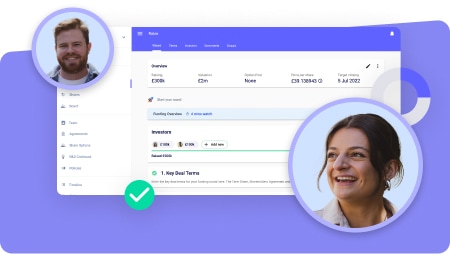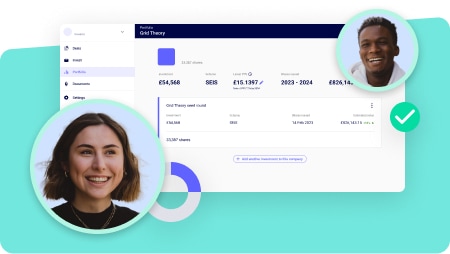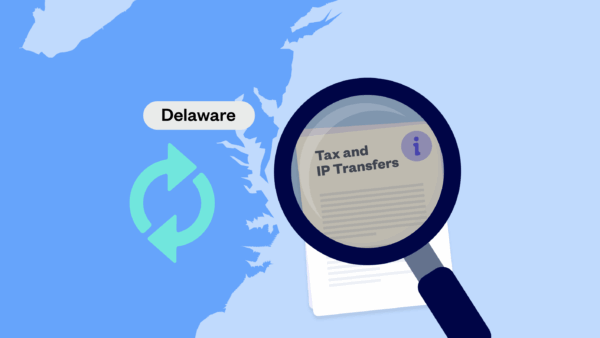Read transcript
Anthony Rose: Should you do the Delaware flip? It is a question that now that SeedLegals is live in the US as well, I get asked a lot. So here’s the problem space, you’re a founder and you’re looking to raise investment, finding investors is tough. And in the UK investors will often say, love what you’re doing, come back later, or won’t give you the valuation you want, or won’t believe in your B2C business or your hardware business.
And so you eye the other side of the pond, the US, and you read those valuations in TechCrunch and founders are raising huge amounts at huge valuations. And so it’s tempting to want to raise from US investors, often because you’re unable to raise from UK investors.
And the question is, what should you do to raise from US investors? Do you just target US investors to invest in your UK company? Or do you need to create a US top company known as the Delaware Flip because you’re going to create a Delaware C corporation and raise investment in that?
So in the next few minutes, let’s explore what’s going to work and maybe what’s not. So the first thing for founders who are looking to raise from US investors is to understand the reason for it. So the starting point is investors will usually invest in companies that are in the same country as them. Why? Because they understand the market, they understand the legals, they know where to find the founders, they can go meet them, they’re familiar with everything, they know the valuations. If it’s investing in companies in another country, you have to firstly compete with a lot of people coming to you that are in the familiar space and now do something unfamiliar.
You don’t know the legals, you don’t know the market, you think the companies themselves are to struggle to establish this new market. So finding investors from other countries is going to be harder than finding them in your own country. And on SeedLegals we see maybe 20% of the time investors are from, you know, Middle East, US, Singapore and others. So it’s not unknown.
But now the question is… if you want to raise specifically from US investors, can you get them to raise to invest in your UK company or do you need to create a US company? So going back to what I said, investors like the familiar. So creating a Delaware C corporation is going to get you a US company. The problem is as soon as your investors go talk to you and you’re still in London, your team’s in London and you’re servicing the UK market, they’re going to go, ‘dude, it’s really a UK company with a $500 Delaware C Corporation. It hasn’t changed anything.’
So I think broadly there are two stable scenarios. Thing one is find out firstly, if you’re unable to raise from UK investors, what the underlying reason is. Maybe they’re just not buying into the proposition. Maybe you’re not presenting in a compelling way. Switching over and spending a lot more time in US investors, if it’s not changing the fundamental reason why an investor isn’t excited by your company, isn’t really going to change anything.
So the next thing is, if you perhaps find that you’re not getting the valuations you want, or you can’t raise as much, of course, by all means target US investors. Don’t just go off and create a US company yet, because there’s a good chance those investors will not see a Delaware corporation as a key reason for investing or not. It’s just going to be way more work for you to set that up as opposed to getting them into your UK company.
So go talk to investors, tell them you’ve got a UK company, you’ve already got UK investors, you’ve got a UK business. Maybe you’re expanding globally, you’re expanding to the US, that’s why you’re looking more widely for investment. And only if they insist that you switch to a Delaware company should you do that.
And the data suggests that a decade ago, US investors would pretty much often insist on Delaware flip. And these days it’s a lot less likely. It’s generally only if you’re getting into Y Combinate or maybe Techstars that they’ll insist on a C Corp. If you’re super early stage, the investors might insist you get your butt on a plane and get in a garage in the valley and go be a real US company. That’s certainly later stage, the data suggests that investors are usually, like 80% of the time, comfortable with investing in a UK company.
Which then leaves the reason for creating a US entity. So there are two ways you can create a US entity. One, like SeedLegals, who are a UK company now launched in the US. So we create a Delaware C Corporation as a subsidiary of our UK company. So we can hire people in the US. So we can have operating agreements and bank accounts in the US and we can rent apartments and office space from a US entity because the US just works that way.
Creating a Delaware subsidiary is super easy. It’s like $500. You’ve got your taxings to sort out. You’ve got other things later, but it’s like a no-brainer. You can just use Stripe Atlas, Doola, or Firstbase, or others to do this. It’s a no-brainer.
However, if you feel that you want to create a US Top Co, then the complexity sits in one of three phases. Phase one, a couple of founders, got your UK company, haven’t raised investment. You know what? Super easy. Just go create a Delaware C-Corporation and cost you $500. The founders will be the directors of it. Don’t even bother with the UK company anymore. Your IP just goes in the top co and you’ve just got a Delaware corporation and then just go raise from US investors or even UK investors. In fact, right now I’ve got a company on SeedLegals that’s set up a Delaware corporation, the founders are in London, they’re raising from UK investors because they’re in the same country and thanks to SeedLegals and SEIS for foreign entities, they’re able to offer SEIS in their Delaware corporation to their UK investors.
Phase 2 is a little later stage company. You’ve already done your first raise. You’ve raised a few hundred thousand pounds SEIS investors in the UK and you now want to flip to the US. And this is more complicated because you have to preserve SEIS in your foreign company. So you have to get pre-approval from HMRC to do that. You have to consider the tax issues.
So if you create your company in the US from the beginning, no brainer. It may make fundraising easier or it may make fundraising harder, difficult to tell. However, if you leave it to later, it gets more complicated.
And that’s where the so-called Delaware flip comes in, which is in order to be attractive to US investors, you perceive that you want to flip it to the US. Generally, you’ll have SEIS or EIS investors. You don’t want them to lose their SEIS or EIS. So as part of the flip, you’re going to write to HMRC to get pre-approval. You’re going to sort the IP transfers, any tax issues, at the end of which you’ll now have a Delaware C corporation, which has an exact mirrored cap table of your UK company. And now you’re ready for your US expansion and raising from US investors.
And of course, with SeedLegals now in the UK and the US, if you ever think of being in the US, you want to it on SeedLegals because you’ll have one platform, just flip between your UK and US companies for a seamless experience and seamless cap table experience. So anything you need help with expansion on the US or a Delaware flip, hit us up at SeedLegals or drop me a note and I’ll see how we can help. And I’m spending half my time in New York and half in London as we launch and expand in the US. So I’ll have some good tips from what to do and maybe what not to do as part of that. Thank you.
Raising investment in the UK can be tough, and often founders look towards the US hoping to find more opportunities. With higher valuations and a vast investor pool, the prospect of raising from US investors can be tempting. But does this mean you need to create a US entity or flip to a Delaware corporation?
In this video, SeedLegals Co-Founder and CEO, Anthony Rose, explains when a Delaware Flip is necessary, how to approach US investors, and the steps involved in setting up a US company.
Key Takeaways
Understanding US investors
- US investors prefer familiarity, often choosing local companies due to better knowledge of the market, legal systems, and direct access to founders.
- Before targeting US investors, ensure you’ve addressed any issues preventing UK investors from engaging, as these may still hinder interest overseas.
Two stable scenarios
- Stick with your UK company: many US investors (up to 80%) are open to investing in UK companies, especially at later stages.
- Flip to a Delaware C Corporation: only pursue this if US investors insist or if required by accelerators like Y Combinator.
Creating a US entity
- US subsidiary (e.g., Delaware C Corporation): straightforward to set up and ideal for operational needs like hiring US staff or opening bank accounts.
- US Top Co (Delaware Flip): more complex and involves mirroring your UK cap table, addressing SEIS/EIS compliance, and managing IP transfers.
Stages of a Delaware Flip
- Early-stage: If no investment has been raised, flipping to a Delaware corporation is simple and low-cost.
- Growth-stage: If you’ve raised SEIS/EIS funds, pre-approval from HMRC is required to preserve tax benefits, making the process more involved.
When a flip may not be necessary
- If your business and team remain UK-focused, creating a Delaware company without significant US operations may not justify the effort.
- Focus on building traction in the UK or other markets before expanding to the US unless there’s a clear operational or fundraising advantage.
























